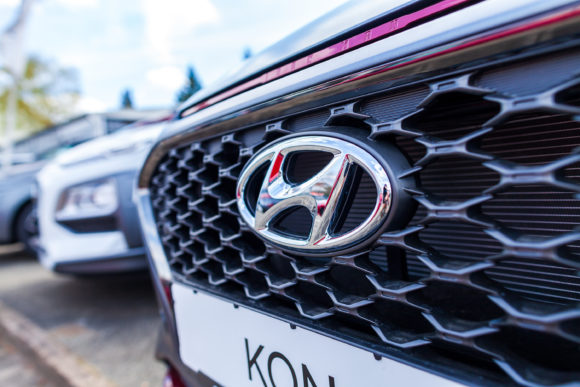Hyundai Motor Co. and Kia Motors’ U.S. units on Friday agreed to a record $210 million civil penalty after U.S. auto safety regulators said they failed to recall 1.6 million vehicles for engine issues in a timely fashion.
The U.S. National Highway Traffic Safety Administration (NHTSA) said the two affiliated Korean automakers agreed to consent orders after it said they had inaccurately reported some information to the agency regarding the recalls.
Hyundai agreed to a total civil penalty of $140 million, including an upfront payment of $54 million, an obligation to spend $40 million on safety performance measures, and an additional $46 million deferred penalty if it does not meet requirements.
Kia’s civil penalty totals $70 million, including an upfront payment of $27 million, requirements to spend $16 million on specified safety measures and a potential $27 million deferred penalty.
“It’s critical that manufacturers appropriately recognize the urgency of their safety recall responsibilities and provide timely and candid information to the agency about all safety issues,” said NHTSA Deputy Administrator James Owens.
The settlement covers recalls in 2015 and 2017 for manufacturing issues that could lead to bearing wear and engine failure.
As part of the settlement, Hyundai is investing $40 million to build a safety field test and inspection laboratory in the United States and implementing new IT systems to better analyze safety data.
“We are taking immediate action to enhance our response to potential safety concerns,” said Brian Latouf, chief safety officer, Hyundai Motor North America.
Kia said in statement it “denied the allegations but agreed to settle the matter to avoid a protracted dispute with the government.” It added it has agreed “to restructure and transfer the departments responsible for recall determinations to the United States.”
Safety Defects
In August 2014, Hyundai agreed to pay a $17.35 million fine to settle an NHTSA investigation that it delayed the recall of 43,500 Genesis cars to fix a brake defect linked to two injuries. NHTSA said in 2014 Hyundai “must change the way they deal with safety-related defects.”
Kia agreed to create a new U.S. safety office headed by a chief safety officer and each automaker will retain an independent, third-party auditor who will directly report to NHTSA and will conduct a comprehensive review of the company’s safety practices.
Hyundai’s consent order will last three years, while Kia’s is for two years, but both can be extended by one year.
The 2015 and 2017 recalls involved the 2011-2014 Hyundai Sonata and 2013-2014 Santa Fe Sport vehicles, while Kia did not recall the vehicles until 2017, when it called back the 2011-2014 Optima, 2012-2014 Sorento, and 2011-2013 Sportage vehicles.
The settlements are separate from ongoing NHTSA investigations into non-crash fires in certain Hyundai and Kia vehicles, some of which have the recalled engines.
In 2019, Reuters reported a group of U.S. states were investigating Hyundai and Kia for potential unfair and deceptive acts related to reports of hundreds of vehicle fires.
In November 2018, Reuters reported that federal prosecutors had launched a criminal investigation into Hyundai and Kia to determine if vehicle recalls linked to engine defects had been conducted properly.
In 2014, Hyundai and Kia agreed to pay $350 million in penalties to the U.S. government for overstating fuel economy ratings, which were billed at the time as the largest ever under the Clean Air Act.
( Reporting by David Shepardson; Editing by Chizu Nomiyama and Emelia Sithole-Matarise)
Topics USA
Was this article valuable?
Here are more articles you may enjoy.



 World’s Growing Civil Unrest Has an Insurance Sting
World’s Growing Civil Unrest Has an Insurance Sting  Judge Tosses Buffalo Wild Wings Lawsuit That Has ‘No Meat on Its Bones’
Judge Tosses Buffalo Wild Wings Lawsuit That Has ‘No Meat on Its Bones’  Viewpoint: Runoff Specialists Have Evolved Into Key Strategic Partners for Insurers
Viewpoint: Runoff Specialists Have Evolved Into Key Strategic Partners for Insurers  Preparing for an AI Native Future
Preparing for an AI Native Future 

